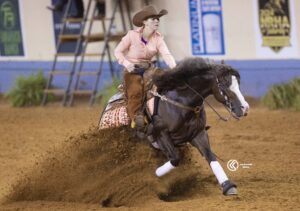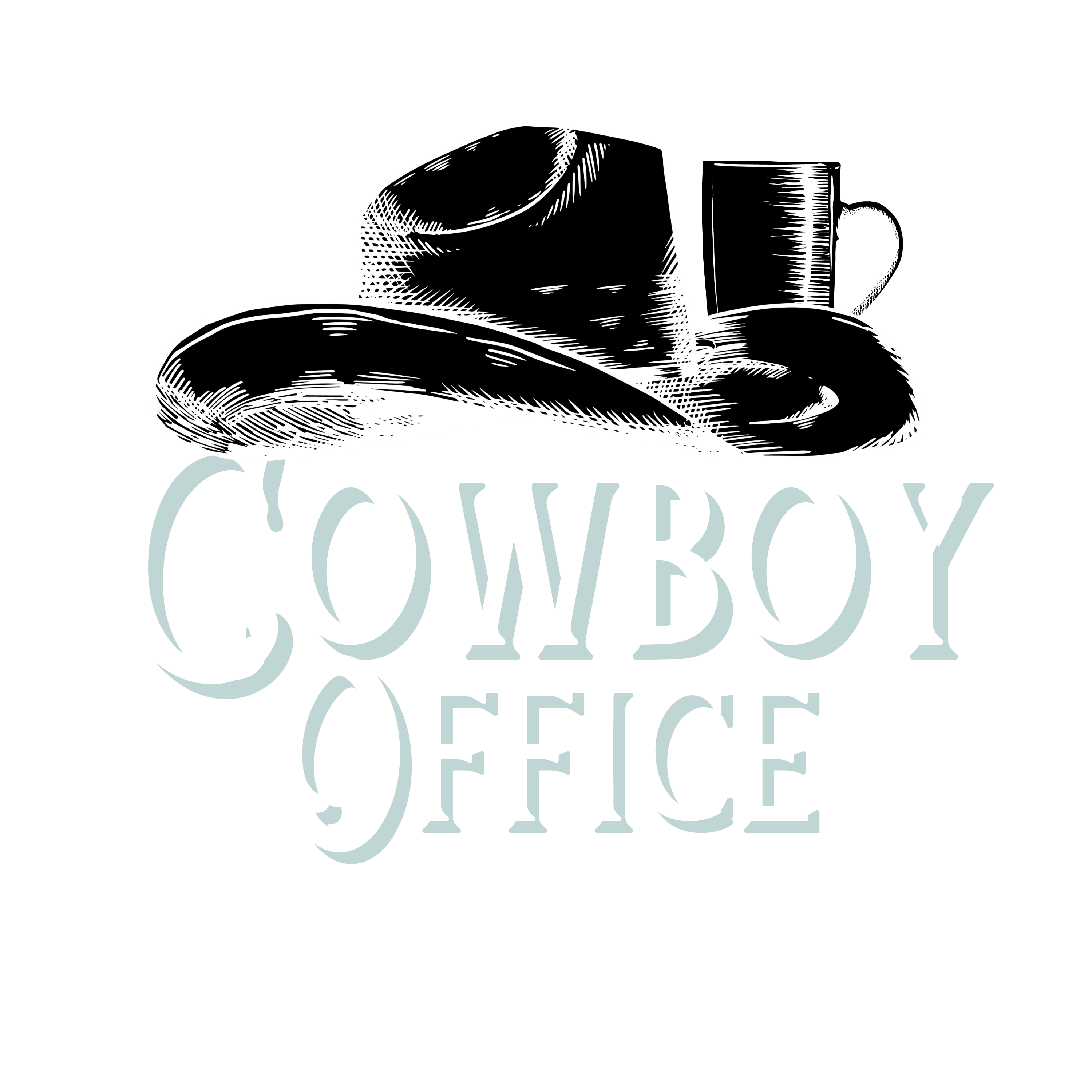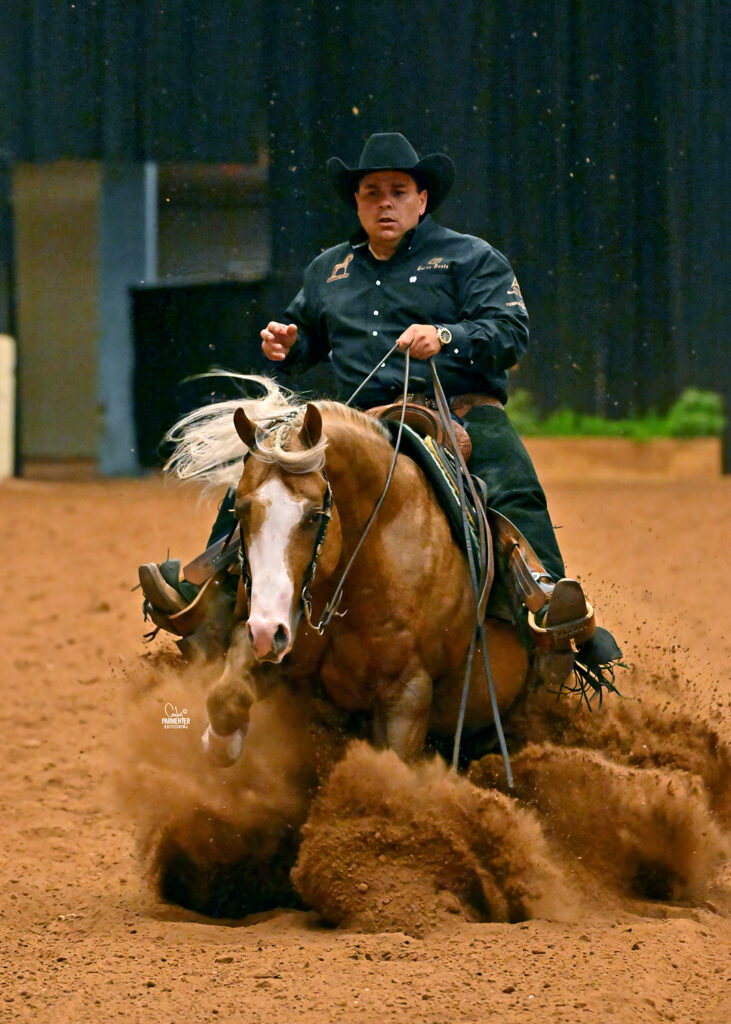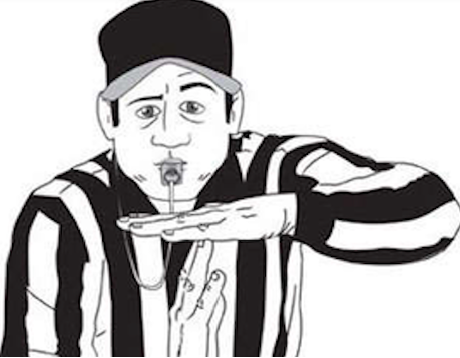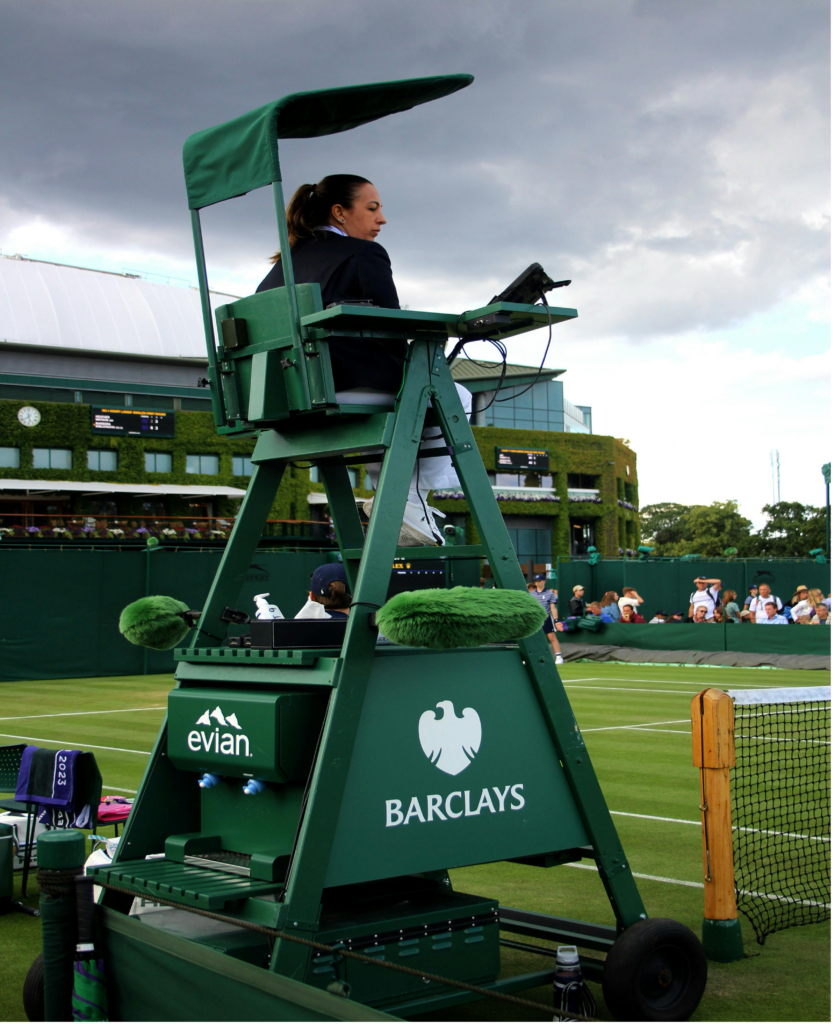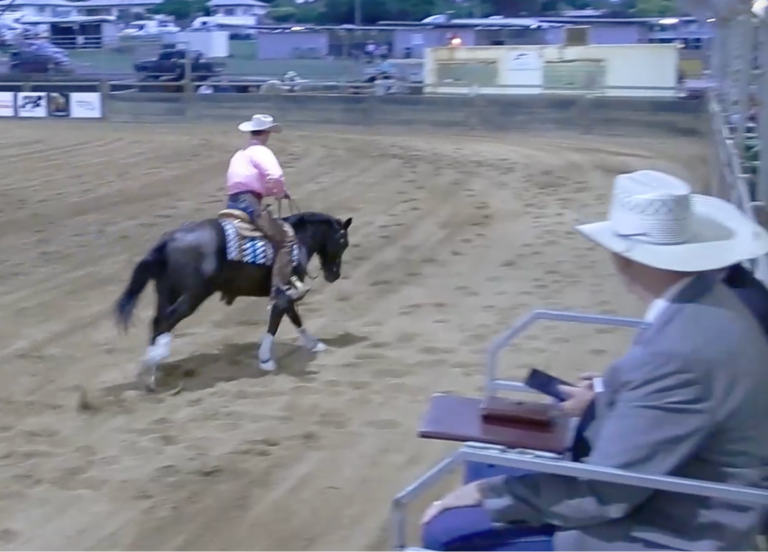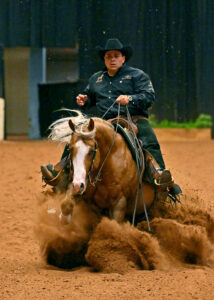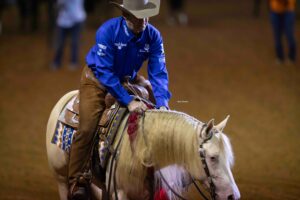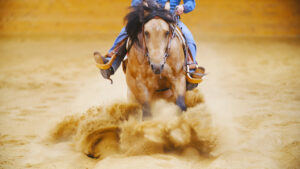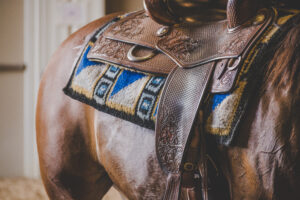There are several weaknesses in the reining system that the exhibitors and fans/spectators can easily identify.
- Making the cut for finals
- ties for champion
- ties within the payouts (thus, purse distribution is affected)
The biggest issue lies in the records – and the dilution of the records over time – with the advancement of purses available annually.
We witnessed a tie for the 2023 Reining Futurity in OKC and after a long unorganized ordeal with two scores of 225.5 which is 75.2 average per official and producing a run-off.
The Champion after the run-off was Brian Bell from Texas, winning the futurity for the first time. He was riding a great mare, Crystalized Whiskey, and marked a 224.5 in the run-off which is 74.8 average per official.
The rule for “co-champions” is another topic for another time and has little to do with the officiating system other than the system commonly produces ties and illustrates one of the major weaknesses.
There are many weaknesses within the system that our team at Cowboy Office have extensively researched, such as
- Making the final’s cut-line,
- Purse distribution, accuracy of score to competitor
- Officials do not use the entire officiating scale effectively.
- Officials not making fine and hard distinctions for accurate reporting
- Finding the winner only
While this article isn’t meant to elaborate on a total list of weaknesses, we summarize these to highlight that gap that exists. Competition demands a winner, including the trophies, payouts and titles that go with it; yet, the current status of reining often fails to produce a singular champion, meaning that purse payouts are diluted and records are skewed.
Jim McKay, sports broadcaster from ABC’s Wide World of Sports, has a famous quote: “the thrill of victory… and agony of defeat.”
Indeed, sports are all about competition and the pursuit to win, the pursuit to be the best. First place is different than second place and definitely different than a tie for first place (or as we call it in reining, co-champions).
The reining officiating system created an official reporter that will determine the thrill of victory. The goal, each and every time a competition is held, is for the officials to record and report what the competitor displays. The pressure to get it right is upon officials now more than ever and if economics continues to mature this sport, this demand will continue exponentially.
The competitors, owners, breeders, show producers push to minimize subjective analysis and expand objective analysis. Judges must use individual expertise to sort the degree of difficulty for determining fine distinctions, the difference between +1 and +1.5, all while an emotional reaction occurs.
At our highest paying and most competitive shows, the need to eliminate and remove all conflicts is now upon the sport, and needs to be addressed.
In today’s culture we hear discussions around “conflict of interest,“ “vested interest,” and “individual interest“ more and more. These topics are present in our sport as well and are slowing our maturation as an industry.
In all professional sports there is a clear wall of separation between officiating and exhibitors. Our sport needs to address this soon. There is plenty of room to develop officials and competitors and horses over time across the multiple levels of competition. However, as we reach the pinnacle of the sport, the clear wall between the two main components (the official and the competitor) is mandatory and necessary for integrity of scoring which ensures the thrill of victory is open to all that put in the hard work to achieve it.
The time is now to get this right. Research on objective analysis is much more readily available and knowledge already gained in this area from many other sports can be used to bring integrity to reining.
The most interesting ideas for advancing the system come from casual discussions with vested individuals from the sport.
Does the governing body that licenses officials, educates officials and manages the program put the effort into research and development of these experts? Is there an investment into R&D to address the weaknesses and advance the officiating to align with the depth of competition?
Not yet, and probably not in our lifetime.
